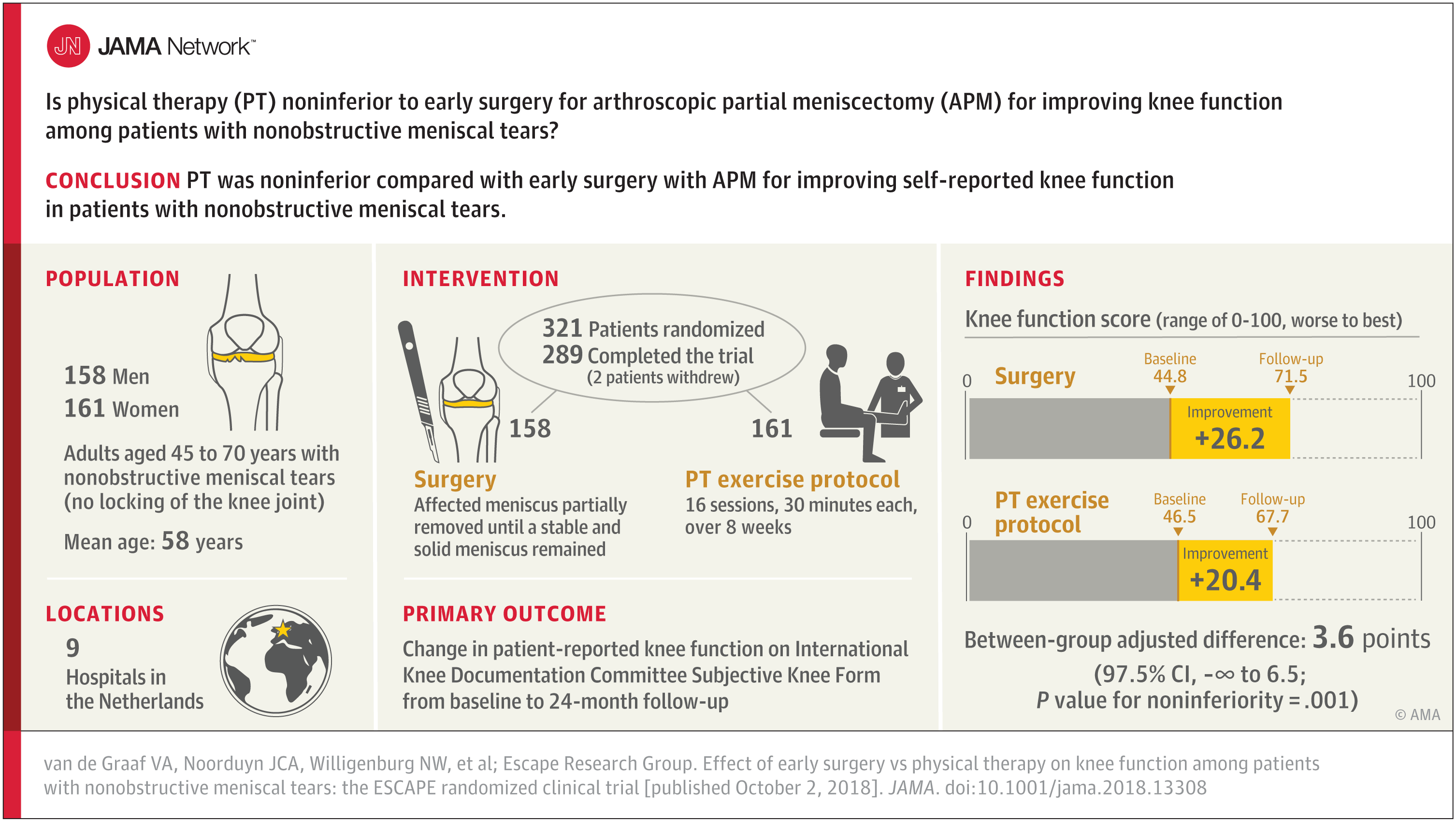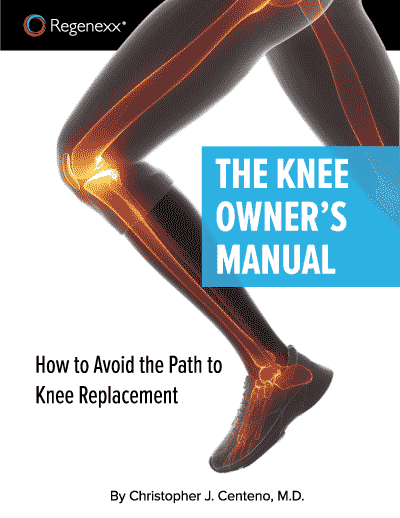Why Are We Still Offering Meniscus Tear Patients Surgery? This Is Getting Nutty
If you read this blog, you have seen that we now have gobs of high-level evidence showing that surgery for the vast majority of meniscus tears in middle-aged patients is a fool’s errand. Despite this, the procedure is still the most common elective orthopedic surgery in the U.S. Now we have brand-new research that also weighs in on this controversial procedure and again finds that it’s no better than physical therapy.
The History of Meniscus Surgery Research
The first sign that meniscus surgery was a lark happened way back in 2002, when a study by a university orthopedic surgeon showed that debridement (the cleaning up of a knee that has arthritis and degenerative meniscus tears) was no better than a sham surgery. After that study, many orthopedic surgeons published nasty comments that equated to a desire to blow up the poor guy’s car. However, over the ensuing years, the procedure slowly slipped into the dustbin of medical history.
The next study came from an interesting source: the same small town in Massachusetts that had given us so much data about heart health. The Framingham osteoarthritis study concluded meniscus tears didn’t hurt and were as common in middle and older ages as wrinkles and about as important. Now things were getting really interesting…
In 2012 a level-1 research study published in the prestigious New England Journal of Medicine showed that meniscus tear patients who had partial meniscectomy surgery didn’t have any better outcomes than those who didn’t have the surgery and just went through physical therapy. Many orthopedic surgeons dismissed the research by arguing that these patients had some arthritis as they felt that there was still a rationale for operating on patients with a meniscus tear who didn’t have arthritis. That all evaporated in 2013 when a level-1 study demonstrated that meniscus surgery in patients with no arthritis was no better than a placebo surgical procedure. The one condition left that surgeons were sure would be a no-brainer for surgery was a knee that was locking due to a meniscus tear. The bubble burst with a study out of Finland that compared mechanical locking patients who had the surgery versus those who did not. The new study again concluded that the procedure was ineffective.
A Newer Study Is Published
The study (again out of Finland) begins with an interesting statement of frustration:
“Despite recent studies suggesting arthroscopic partial meniscectomy (APM) is not more effective than physical therapy (PT), the procedure is still frequently performed in patients with meniscal tears.”
This new research included more than 300 patients in nine hospitals who had been diagnosed with meniscus tears after age 45. About half the patients were randomized to partial meniscectomy and half to eight weeks of physical therapy. Not surprisingly, once all of the data was crunched, the procedure turned out to be no more effective than physical therapy. This is a really nicely done summary by JAMA:

What are the alternatives? Can a knee meniscus tear be treated without surgery if physical therapy doesn’t help? Read my book below to find out (click on the picture):
The upshot? Why are we still offering this procedure to patients? Your guess is as good as mine. Having said that, it’s time to start phasing this out. My guess is that we’re a year or two away from most national health systems deciding not to cover it and three to four years away from American insurers only covering it on a case-by-case basis. So if you’re over 35–45 and have knee pain and have been told you have a meniscus tear and your doctor tells you need this surgery, without a complete discussion that it has been shown to be ineffective, please politely say no and never return to that office!

If you have questions or comments about this blog post, please email us at [email protected]
NOTE: This blog post provides general information to help the reader better understand regenerative medicine, musculoskeletal health, and related subjects. All content provided in this blog, website, or any linked materials, including text, graphics, images, patient profiles, outcomes, and information, are not intended and should not be considered or used as a substitute for medical advice, diagnosis, or treatment. Please always consult with a professional and certified healthcare provider to discuss if a treatment is right for you.
